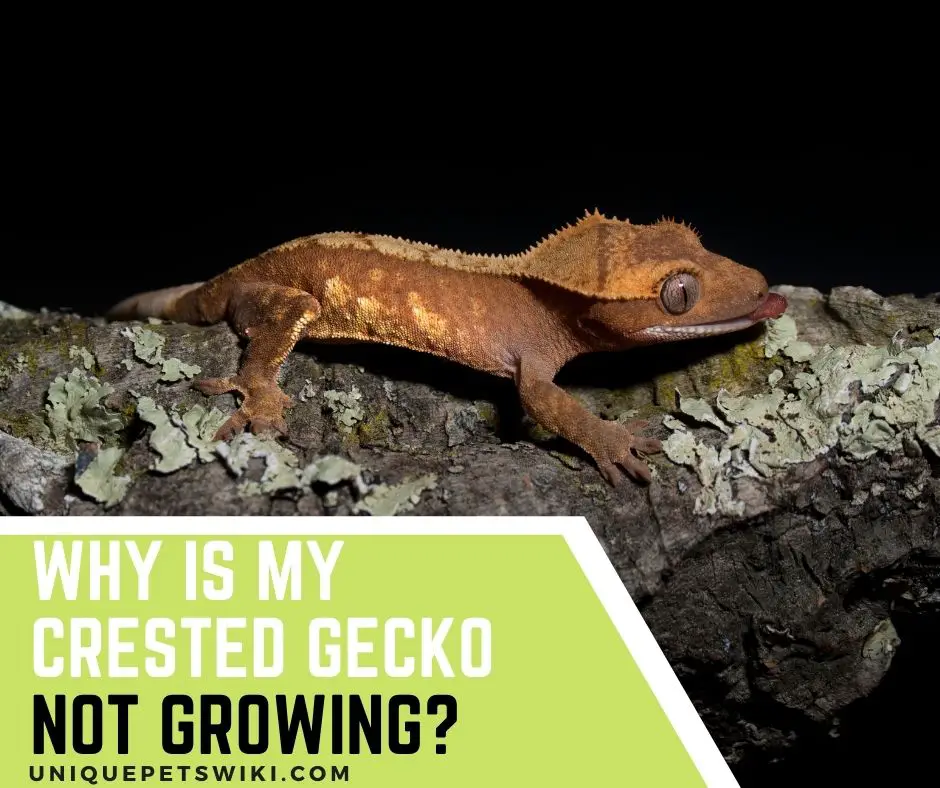Almost all reptiles have a fast growth rate in their first 2-10 years. During these years, they eat more and subsequently grow faster. However, when one or two things are inappropriate with their care or habitat, this may cause slow growth rate. Many times I’ve been asked by new gecko owners, “Why Is My Crested Gecko Not Growing?” My best answer is always that there is something you aren’t doing right which needs to be rectified.
Crested geckos are adorable and make perfect pets. In some cases, a crested gecko may remain small and not grow well. At different ages, crested geckos have differing sizes, which could indicate a cause for stunted growth.
This might be due to your crested gecko being housed in an insufficient cage, lack of proper humidity and temperature, or being infected (parasites, calcium, or vitamin D3 deficiency), among other things.
Crested geckos should gain around one gram per month in a healthy state. There are periods of no growth among crested geckos (particularly in the winter). However, there might be something wrong with your crested gecko if it is less than 8-10 grams, and it has been more than a year.
Here we will answer the question, ‘what makes my crested gecko so small? And why is it not growing? Read more and know the 8 causes for their stunted growth and ways to treat them.
This article has been reviewed by Dr. Gospel. Read more about our knowledge control process here.
Contents
- Signs Of Crested Gecko Not Growing
- Why Is My Crested Gecko Not Growing?
- Poor Diet
- You Fed Them Less Than What They Need
- Your Crested Gecko Is Bullied By Others
- Tank Is Too Big That Causes Stressed and Not Eating
- Habitat Incorrect: Temperatures, Lighting And Humidity Is Too Low
- Your Crested Gecko Is Infected With Parasites
- Your Crested Gecko Is Infected Metabolic Bone Disease
- Genetics: Your Crested Gecko Is A Slow Grower
- In Conclusion
Signs Of Crested Gecko Not Growing
Some crested geckos grow slowly compared to others. However, if you notice that your crested gecko is too small for its age, there might be a problem. It is considered too small if your crested gecko weighs only 10g after 14-24 months.
An underweight crested gecko body and legs will be slim, the ribs and hip bones will be visible, and the belly won’t be round.
Crested Gecko’s Size And Growth By Age
Each species of crested gecko can be different in size. Some species are larger than others. An adult Crested gecko can grow to 8-10 inches, which is moderate in size. Tails can grow to about 4 inches long. The smallest geckos can reach about 6-7 inches in length.
How big a crested gecko can also vary depending on its gender. There are usually more large male geckos (about 1-2 inches) than female crested geckos. Approximately 25g is the weight of an adult female crested gecko, while 30-35g is the weight of an adult male.
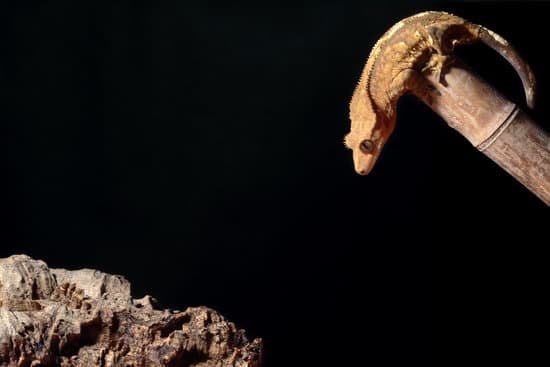
How Long Will Crested Dragons Live If They Don’t Grow?
As discussed above, a few crested gecko growth rates are slower than others. If your crested gecko growth is slower due to common reasons such as genetics or incubation period, there is nothing to be worried about.
On the flip side, if the reason behind their slow growth is nutritional deficiencies, illness, or other life-threatening issues, their life expectancy can be less than a normal crested gecko.
Why Is My Crested Gecko Not Growing?
This is a common concern of many crested gecko owners. There are numerous reasons behind your gecko’s stunted growth, including nutritional deficiencies, dehydration, incorrect temperature, inadequate habitat, illnesses, poor diet, and more.
Poor Diet
You might notice slow growth in your crested gecko if it isn’t eating enough. The reasons that your crested gecko is not eating enough can vary.
It is difficult to eat when the temperatures are low, and the humidity is high. Among the main problems that new owners face is setting up an optimal heating and humidity system. Setting up an optimal habitat environment will help improve their diet.
Your crested gecko can become skinny if its diet is of poor quality, especially if it is fussy. The Crested Gecko Diets (CGD) vary in consistency and taste. Your crested gecko might not like the taste or texture of the food it’s eating.
You Fed Them Less Than What They Need
Generally, small crested geckos are satisfied with few licks. Adults (30-40 grams) can eat up to a quarter teaspoon of food. Give your leopard gecko two appropriately sized bugs per inch of its length or how much they can consume in 15 minutes.
Young children should be fed every day, while young adults should be fed every other day or every third day. Adults with fatter tails than necks can be fed every five days. If you feed anything less than that it can impact their growth and development.
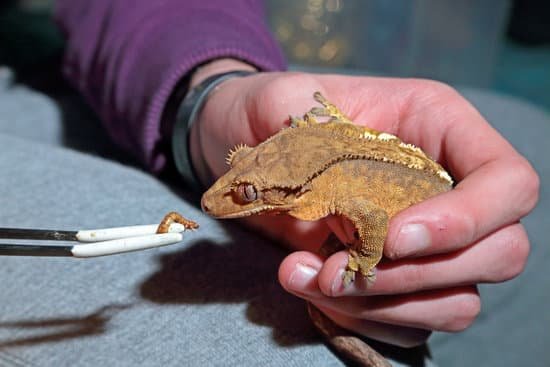
Your Crested Gecko Is Bullied By Others
In a gecko enclosure where more than one crested gecko exists, the slowed growth of one of the gecko/s may be caused by being bullied by the others.
Small geckos tend to do this very often.
A male crested gecko should never be kept with another male.
When babies or juveniles are housed together, they can also experience slowed growth rates.
Geckos that are bullied slow down on eating as a result of stress.
You can boost the confidence, appetite, and growth rate of baby geckos by keeping them apart.
Tank Is Too Big That Causes Stressed and Not Eating
A big tank enclosure may cause crested geckos to have poor appetites due to stress.
Immediately housing a small crested gecko in a large terrarium of 15-30 gallons is not recommended. If your crested gecko is under six to ten months old, a 10-gallon terrarium will be too large for it. Keep small geckos in 3-6 gallon tanks until they weigh 15 grams.
If you keep small crested geckos in smaller enclosures, they will grow faster. Because of this, your crested gecko will find food & water more quickly and will not be stressed.
In a larger enclosure, you can even provide your crested gecko with two feeding spots.
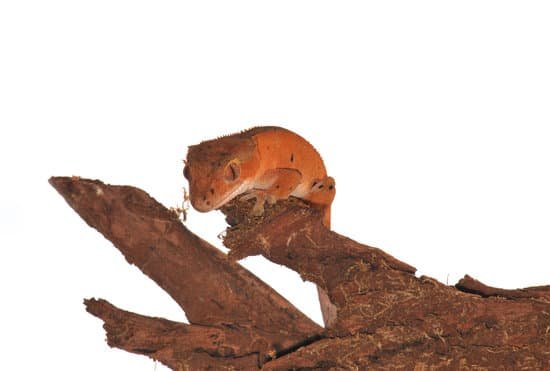
Habitat Incorrect: Temperatures, Lighting And Humidity Is Too Low
Having low temperatures and humidity will affect the growth rate of your crested gecko.
Low cage temperatures can cause digestive, immune, and energy disorders. Your gecko’s appetite and health will be negatively affected by it in the long run.
The ambient temperature should be between 71°F and 79°F. Getting too cold will cause your crested gecko to brumate and will slow its growth.
Your gecko’s overall health and growth depend as much on humidity as anything else.
Your Crested Gecko Is Infected With Parasites
A crested gecko with parasites will likely grow slowly or stop growing altogether. Parasite infestations can seriously impair a gecko’s health and slow growth.
If you notice any parasites in your crested gecko’s poop, keep an eye out.
It may be worthwhile to let the vet examine a fecal sample if your gecko isn’t growing and you’ve tried everything else.
Your Crested Gecko Is Infected Metabolic Bone Disease
Calcium or vitamin D3 deficiency is the cause of Crested gecko Metabolic bone disease. Diets of only fruits or baby food are often to blame for this problem.
Your Crested gecko’s development and health depend heavily on calcium. Calcium is necessary for muscle and organ function, as well as for egg production and breeding.
Calcium levels in the bloodstream of your Crested gecko should be around 1%. Anything less than that will hinder your gecko’s growth and cause MBD.
If you notice symptoms like wavy tail, curved limbs, lethargy, loss of appetite, and soft jaw, take them to a vet to test Metabolic bone disease.
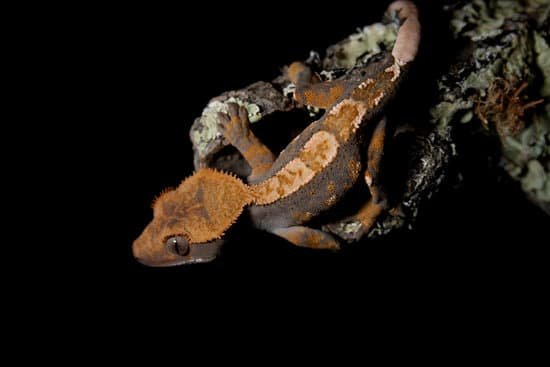
Genetics: Your Crested Gecko Is A Slow Grower
Genetics plays an essential role in gecko growth and development. Your crested gecko’s development will be affected by the size, bone structure, ability to absorb nutrients, and growth history of its parents.
So if your crested gecko isn’t growing, sometimes it simply has parents that aren’t growing. If you decide to breed your geckos in the future, you should keep a record of their growth rate, enabling you to determine their offspring’s growth rate.
In Conclusion
Is your crested gecko active and happy after reading this post? If so, don’t worry. Many crested geckos do acquire some spurs and slow growth. If you haven’t already done so, please have a fecal test done. In case your gecko is infested with parasites, this treatment can help.
Begin offering 2-3 crickets per feeding, once a week, if you mainly feed CGD. It is possible that some crested geckos won’t be interested in insects, but introducing insects shouldn’t prevent your crested gecko from eating CGD. Your crested gecko can even grow faster if you provide CGD with bugs.
Weigh your crested gecko on a digital scale every week (they are inexpensive and can be found for 10-15$). Weigh the scale to the nearest 0.1g. Record the results in a journal.
It is normal for crested geckos to reach 35-55 grams after 2-3 years. The crested gecko is fine if it is eating, pooping, and active.
